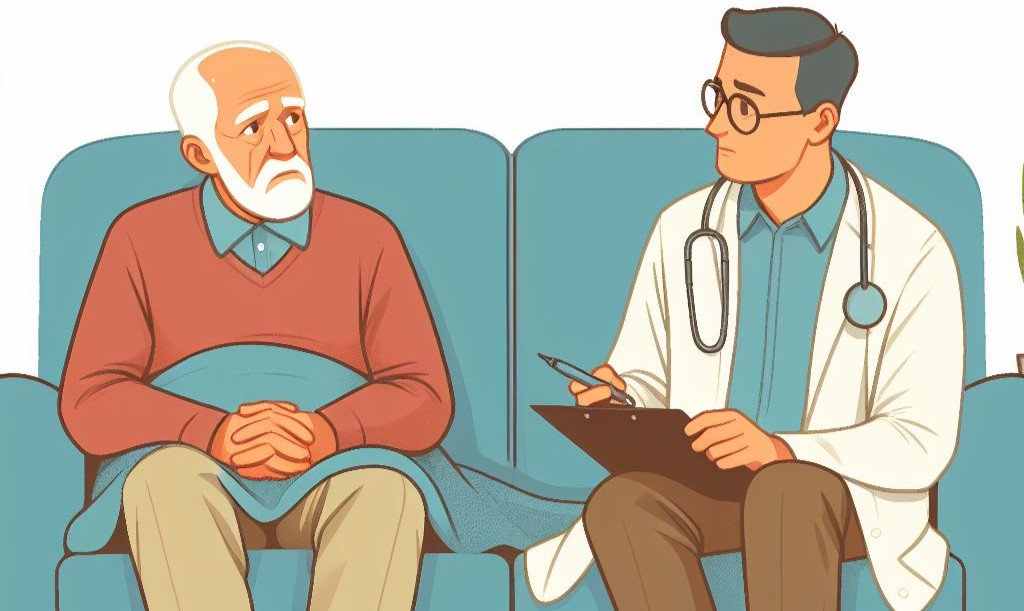I’m going to kick things off by reflecting on the imagination of my younger self. We often look at retirement as this distant, almost mysterious phase of life that seems so far away we can barely grasp its reality. You see, as a young man, I saw retirement as an illusory thing, something that would unfold in an unfathomably distant future. Inside my head, I’m still that young person, but the mirror tells a different story; my movements are more measured, my pace slower.
The older you get, the faster time seems to fly, doesn’t it? One day you’re planning your career and the next, you’re either in or closing in on your late sixties. As these years creep up on you, it’s crucial to prepare for the inevitable changes, or at the very least be aware that, indeed, the times they are a-changing. This isn’t just about aging; it’s about how you adapt to the evolving chapters of your life.
Don’t worry too much about morphing into a sedentary lifestyle, the proverbial ‘rocking chair attitude’. Instead, choose to stay busy and fully engaged with life. Retirement should be seen not as a decline into inactivity but as an opportunity to pursue new learning experiences, to indulge in passions set aside during the working years, and to explore avenues that bring joy and fulfillment.
That being said, it’s crucial to acknowledge that this transition isn’t seamless for everyone. Some seniors find themselves wrestling with shadows that weren’t part of their younger days. This leads us naturally into a discussion on a significant issue affecting many seniors: depression. Understanding the intricacies of this condition, especially as it pertains to senior citizens, is the first step in aiding those who face it.
Understanding Depression in Senior Citizens
As we peel back the layers to understand depression in older adults, it’s clear that it’s a serious, but too often overlooked condition. Depression goes beyond merely feeling blue; it’s a pervasive issue that can severely impact quality of life for seniors.
First off, depression isn’t a one-size-fits-all malady, particularly in the elderly. The reasons for its emergence can be complex and multifaceted. For some seniors, it might stem from the struggle with chronic illnesses or the daunting reality of physical decline.
Then there’s the environment. The loss of a cherished life partner or close friends can leave an irreplaceable void, leading to profound sadness. Add to this mix the potential for increased isolation as mobility wanes, and it becomes clear why the golden years might not always glisten for some.
Yet, it’s not just the social aspect that weighs heavily on senior minds. The interplay between mental health and the aging brain can be intricate. Cognitive decline, a natural part of aging for many, can be both a symptom and a potential trigger for depression.
So, why am I talking about depression among seniors? Because it’s crucial to shine a light on this darker side of retirement life, often masked behind closed doors. Being aware of these realities is the first pivotal step in shifting the narrative about seniors and their mental health.
Challenging the ‘Rocking Chair Attitude’: Staying Engaged
You might think that retirement sends everyone straight to a rocking chair, but I’m going to challenge that idea. It’s a cliché that doesn’t have to be your future. Far from settling into a sedentary lifestyle, a lot of senior citizens are actually enjoying their golden years with gusto.
In my opinion, being proactive in retirement is a game-changer, whether it’s gardening, painting, or continuing your education, engaging in hobbies and activities that you love can help fend off depression, giving you a strong sense of purpose and satisfaction.
But why stop at hobbies? Physical activity is crucial. You’re going to find out about studies showing that regular exercise can significantly improve mental health by reducing anxiety, depression, and negative mood. It also enhances self-esteem and cognitive function. So, consider registering for that yoga class or joining a walking club.
Don’t think of retirement as the end of your work life, but as an opportunity to explore new ventures. You can always adjust your approach down the road, but staying busy is essential. Volunteering, mentoring, or even part-time work can keep you connected to the community and make every day meaningful.
I really hope that you see retirement as a chance to flourish, not diminish. Embracing an active lifestyle not only keeps your body healthy but your mind sharp as well. Next, I’m going to talk about practical steps for adapting to and thriving during these significant years. It’s not just about what you do, but also how you prepare for the evolving chapters of your life.
Adapting and Thriving: Preparing for Change in the Golden Years
You’re going to find out about how reaching your late sixties doesn’t mean you’re sentenced to a life void of growth and excitement. Instead, it’s a chance to refocus and reinvent your day-to-day experiences. In my opinion, adaptability is the key to experiencing a rich and fulfilling retirement.
Consider taking a course on financial literacy or meet with a financial advisor to ensure your retirement savings are well-managed. This isn’t just about money; it’s also about peace of mind.
Staying mentally sharp is crucial. Engage in puzzles, learn a new language, or take up writing—anything that challenges your brain and keeps you curious. I’m here to help you understand that mental vitality can be maintained, and even improved, with age.
Finally, don’t overlook the role of technology in staying connected. Mastering new gadgets and apps isn’t just for the youth; it’s a powerful tool for keeping in touch with loved ones, managing health, and accessing education. There’s a lot of opportunity in understanding how to leverage technology for an improved quality of life in your senior years. And to pursue that thought further please see my review on Wealthy Affiliate.
Creating a Supportive Environment for the Elderly
Building a supportive community for senior citizens doesn’t happen by chance; it’s a deliberate process that involves the collective effort of society. After all, the environment we cultivate today is the one we’ll all inhabit tomorrow. As we engage in forging supportive spaces for our elder population, we must consider several pivotal aspects.
Accessible healthcare and counseling services are critical. When we talk about healthcare, it’s not just about treating illnesses; it’s about preventive measures, consistent support, and mental health prioritization. Counseling services should be readily available, offering a helping hand in navigating the complexities of senior mental and emotional health.
But healthcare is just one piece of the puzzle. The role of family and sustained social connections cannot be overstated. Maintaining strong, intergenerational relationships is vital, as these bonds provide emotional sustenance and a profound sense of belonging. Encouragement and care from younger family members infuse the daily lives of seniors with joy and purpose.
In addition, we should push for more initiatives that give seniors a platform to contribute to community life—be it through mentorship, teaching, or volunteer work. These opportunities are not just about keeping busy; they offer seniors a chance to impart wisdom and knowledge, and to feel valued and needed by society.
Creating an environment of inclusivity for elders isn’t an act of charity; it’s an investment in a compassionate and holistic society that values every member at every stage of life. Such an environment doesn’t just benefit our senior citizens today; it sets a precedent of care, empowering future generations to continue this vital work. Take action to make a positive difference in the lives of our seniors. Because when we support our elderly, we’re not just helping others—we’re crafting the future of our own senior years.

